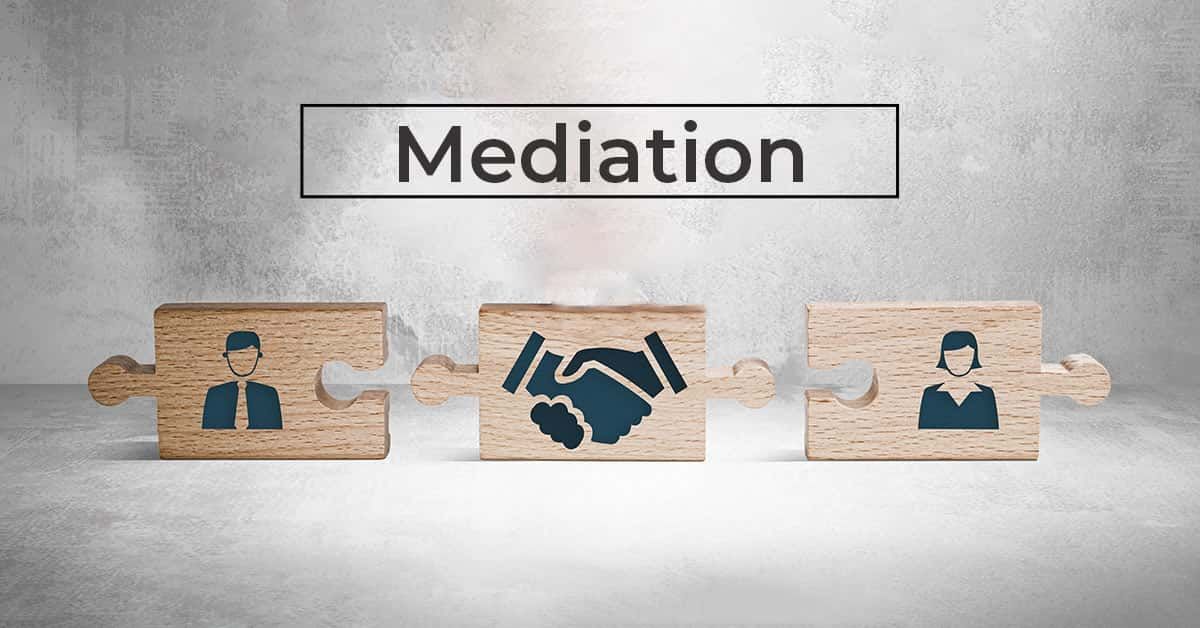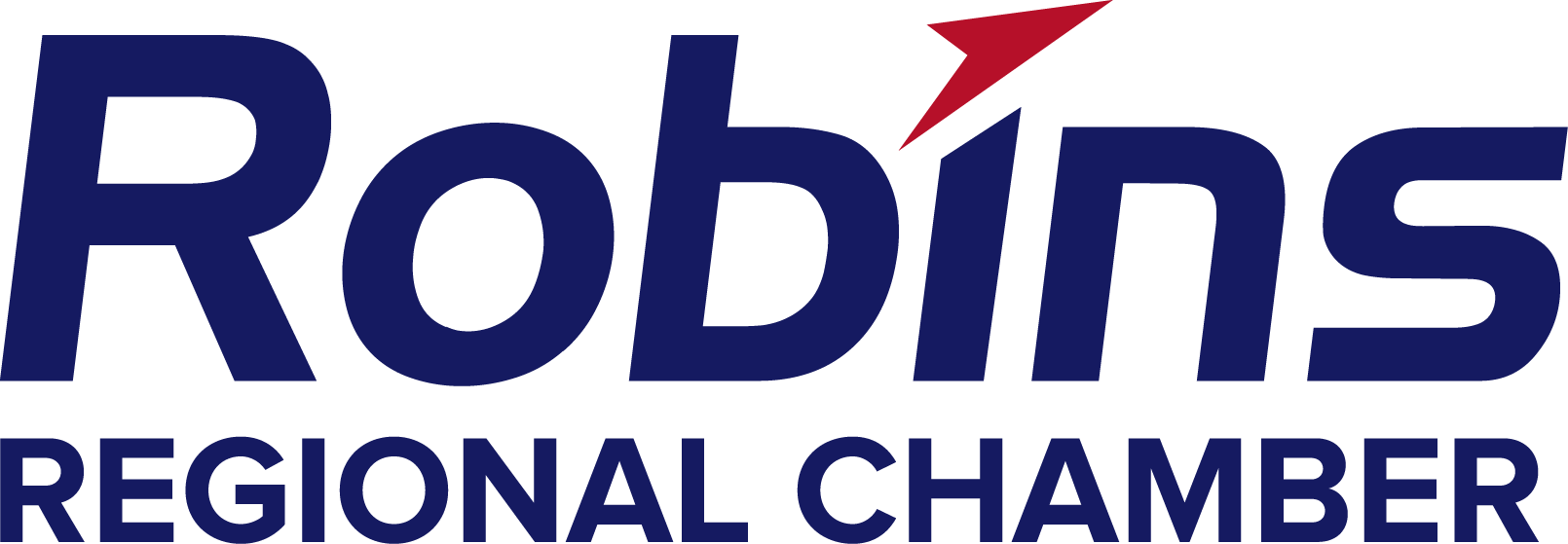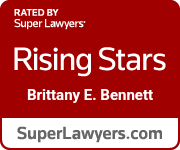We handle family matters because family matters.
Bennett Law and Mediation Services LLC
Bennett Law & Mediation Services LLC is one of middle Georgia’s premier law firms and is one of the largest practices in Warner Robins with a dedication to client communication.
We are a multi-specialty law firm serving individuals and businesses throughout middle Georgia and across the United States. We are proud to have represented many of our clients through their most difficult life happenings, including business disputes and divorces. While our clients appreciate the results we achieve, the way we achieve those results is equally important. Professionalism, Integrity, and Collegiality remain a top priority.
We do more than just respond to a client’s needs. We anticipate them. Because we work hard to understand each client’s business, and unique personal situations involving children, we can be more proactive about protecting their interests. Because we are committed to frequent communication and ready accessibility, we can obtain client input quickly and move forward in an expeditious and methodical manner. Because we embrace the highest standards of professionalism and integrity, you can trust us to do the right thing for you.
While we are zealous advocates in the courtroom, we also recognize that not all legal issues need to be litigated, therefore, we also offer mediation services tailored to your needs.
We look forward to working with you!
Recent Blog Posts

Negotiation is not just about getting what you want—it's about finding common ground, building relationships, and crafting solutions that benefit all parties involved. Whether you're discussing a business deal, resolving a conflict with a coworker, or deciding where to go on vacation with your partner, negotiation is a daily part of life. To master the art of negotiation, we turned to insights from a seasoned mediation expert. With years of experience helping people navigate conflict and reach mutual agreements, they offer timeless strategies that anyone can apply. Here are some of their top tips: 1. Prepare with Purpose Before entering any negotiation, preparation is key. This means understanding: Your goals : What do you really want? What’s non-negotiable? The other party’s goals : What might they value most? What are their constraints? The context : Are there external pressures, deadlines, or relationships to consider? A mediator always enters the room with a clear picture of all stakeholders’ needs, allowing them to guide discussions with clarity and empathy. 2. Listen Actively and Empathetically True negotiation isn’t just about talking—it’s about listening. Active listening involves: Nodding or giving verbal cues to show you’re engaged Summarizing the other person's points to ensure understanding Asking open-ended questions to explore their perspective A mediation expert emphasizes that people are more willing to compromise when they feel heard and respected. 3. Manage Emotions—Yours and Theirs Emotions are natural in negotiation, especially when stakes are high. A skilled negotiator: Stays calm and composed under pressure Recognizes emotional triggers and avoids escalating conflict Helps others regulate their emotions by staying empathetic and non-reactive The mediator’s advice? "Don’t aim to win the argument; aim to win trust." 4. Focus on Interests, Not Positions Positions are what people say they want; interests are why they want them. For example: Position: "I need a 10% raise." Interest: "I want to feel recognized and secure in my role." By uncovering interests, you open the door to more creative solutions. Mediation often involves reframing problems in a way that aligns both parties’ deeper needs. 5. Know Your BATNA BATNA stands for Best Alternative to a Negotiated Agreement . It’s your fallback plan if negotiations fail. Knowing your BATNA gives you confidence and prevents you from accepting a poor deal. The expert reminds us: “A strong BATNA is like a safety net. It keeps you grounded.” 6. Be Willing to Walk Away Sometimes, the best negotiation is the one you don’t finalize. If the terms aren’t fair, or the relationship is too damaged to continue productively, it’s okay to walk away. The key is knowing in advance what your red lines are—and respecting them. 7. Aim for Win-Win Outcomes The best negotiators don’t aim to dominate—they aim to collaborate. A win-win outcome: Strengthens relationships Builds trust for future negotiations Leaves all parties feeling valued Mediators are trained to help people see that mutual benefit is not only possible—it’s often easier to achieve than expected. Need Help Navigating a Dispute? If you're seeking mediation, Bennett Law & Mediation Services is here to support you. Give us a call today to schedule a consultation—let's find a resolution that works for everyone.

Georgia Senate Bill 68 (SB 68) strikes a balance between protecting businesses from frivolous lawsuits and ensuring fairness for everyday Georgians. By reforming the state’s tort system, SB 68 fosters a predictable legal environment that benefits small businesses, large employers, and consumers alike. Why Georgia Needs Tort Reform Georgia has become known for its high-dollar lawsuit awards and litigation-friendly environment, driving up insurance costs for businesses and increasing the price of goods and services for consumers. According to industry reports, business liability insurance premiums in Georgia are among the highest in the Southeast, largely due to excessive lawsuit awards and unpredictable litigation outcomes. This burden trickles down to consumers, who face higher costs for goods and services as businesses offset these rising expenses. Additionally, small businesses—already operating on thin profit margins—are particularly vulnerable to the financial strain of lawsuits, often being forced into costly settlements regardless of merit. By implementing common-sense legal standards, SB 68 helps to ensure that the judicial system is fair, reasonable, and sustainable for businesses and individuals alike. Key Benefits of SB 68 for Businesses Lower Business Costs and Consumer Prices By limiting excessive lawsuit awards, SB 68 helps reduce business liability insurance costs. Lower insurance expenses allow businesses to invest in growth, hire more employees, and keep prices competitive for consumers. With fewer unwarranted legal expenses, businesses can focus on innovation, expansion, and improving employee benefits rather than litigation defense. Protection from Frivolous Lawsuits The bill introduces safeguards against “nuclear verdicts”—jury awards that far exceed actual damages. Preventing manipulative legal tactics, like suggesting arbitrary pain-and-suffering damage amounts, ensures verdicts are based on facts, not emotion. By requiring stricter evidentiary standards, SB 68 discourages the exploitation of legal loopholes that encourage excessive claims. Encourages Job Growth and Economic Investment A fairer legal system makes Georgia more attractive to investors and new businesses, leading to job creation and economic expansion. States with tort reform tend to see higher business confidence and lower unemployment rates. When businesses no longer have to fear runaway litigation costs, they are more likely to invest in hiring, infrastructure, and local communities. Why SB 68 Doesn’t Harm Everyday Georgians While businesses benefit from these reforms, everyday Georgians still maintain their right to fair compensation in legitimate injury cases. The bill introduces common-sense legal standards to prevent abuse of the system, not to block rightful claims. Injured Georgians Still Get Fair Compensation The bill does not cap damages—it simply prevents inflated, unrealistic claims. Georgians can still sue for legitimate medical expenses, lost wages, and actual pain and suffering. The legal system remains open for genuine victims, while reducing incentives for opportunistic or exaggerated claims. Encourages Personal Responsibility Allowing seat belt usage as evidence in car accident cases means that individuals who take safety precautions aren’t penalized unfairly. This helps ensure liability is assigned fairly and accurately, rather than imposing unnecessary costs on businesses and insurers. Ensures Property Owners Aren’t Unfairly Blamed for Crime Businesses and property owners are not automatically liable for crimes they couldn’t reasonably prevent. This helps small businesses avoid unfair lawsuits that could bankrupt them while still holding negligent landlords accountable. By focusing liability on preventable and foreseeable risks, SB 68 ensures fair outcomes for both plaintiffs and defendants. Real-World Examples Where SB 68 Would Have Made a Difference Samson Tours Case Samson Tours, an Atlanta-based business, was sued after a mother and child were struck by another driver at a school bus stop—despite Samson Tours having no direct involvement in the incident. The company was dragged into litigation and saw insurance premiums spike by 400%, illustrating how excessive lawsuits harm small businesses. SB 68’s stricter liability standards could have prevented such an unfair outcome. Coen v. Aptean In this case, a plaintiff pursued an abusive litigation claim seeking excessive punitive damages against his employer. Courts ultimately limited his ability to claim punitive damages without substantial justification. SB 68 ensures that punitive damages are awarded only when warranted, discouraging retaliatory lawsuits against businesses. Conclusion Georgia Senate Bill 68 is a pro-business, pro-consumer reform that ensures fairness in the legal system. It reduces unnecessary costs for businesses while ensuring legitimate victims still receive fair compensation. By preventing lawsuit abuse, SB 68 helps keep prices low, create jobs, and protect Georgia’s economic future—without taking away anyone’s rights. If Georgia wants to remain a thriving, competitive business hub, passing SB 68 is a necessary step toward a fair and balanced legal system for all.

If you’re a business owner, you’ve likely heard about the Beneficial Ownership Information (BOI) filing requirements recently introduced under the Corporate Transparency Act (CTA). This new federal rule is designed to combat financial crimes like money laundering and terrorism financing by increasing transparency in business ownership. However, not all businesses are required to file, and some are exempt from these requirements. Here's what you need to know. What Is the BOI Filing Requirement? The BOI filing requirement, as outlined in the Corporate Transparency Act and implemented by the U.S. Department of Treasury’s Financial Crimes Enforcement Network (FinCEN), mandates that certain entities report information about their beneficial owners. Beneficial owners are individuals who: Exercise substantial control over the entity, or Own or control at least 25% of the ownership interests in the entity. The BOI filings are confidential and will be accessible only to authorized government agencies and financial institutions for specific purposes. Who Must File? The BOI filing requirement applies to most corporations, limited liability companies (LLCs), and similar entities created or registered to do business in the United States. If your business falls into this category, you are likely required to comply with the rule. Who Is Exempt? While many entities are required to file, the law provides several exemptions under 31 CFR § 1010.380(c)(2). Notable exemptions include: Large operating companies : Entities with more than 20 full-time employees, over $5 million in gross receipts or sales, and a physical office in the U.S. Certain regulated entities : Banks, credit unions, insurance companies, and other entities already heavily regulated by federal or state authorities. Tax-exempt organizations : Nonprofits, including 501(c)(3) organizations. Inactive entities : Companies that were in existence for over a year before January 1, 2020, have no ongoing business activity, and meet other specific criteria. For a complete list of exemptions, refer to the regulation directly: 31 CFR § 1010.380(c)(2). Recent Developments: Injunction on BOI Filing As of December 2023, the U.S. District Court for the Eastern District of Texas issued an injunction in the case National Small Business Association et al. v. Janet Yellen et al., temporarily halting the enforcement of the BOI filing requirements. This decision stems from litigation challenging the implementation of the Corporate Transparency Act. Business owners should stay informed about updates, as this injunction may delay filing deadlines or impact compliance requirements. For more information, visit the FinCEN website’s Corporate Transparency Act page or review the court’s decision here. What Should Business Owners Do Now? While the injunction provides temporary relief, business owners should prepare for compliance by: Identifying whether their business is subject to the BOI filing requirement. Gathering information about beneficial owners, including names, dates of birth, addresses, and identification numbers. Monitoring updates from FinCEN and other official sources for changes to the rule or deadlines. Final Thoughts The BOI filing requirement marks a significant shift in corporate transparency in the United States. Understanding whether your business must comply—or qualifies for an exemption—is crucial to avoid penalties. Given the current legal developments, now is an excellent time to consult a legal or compliance professional to ensure your business is ready for whatever comes next. For more detailed guidance, visit FinCEN’s official page on the Corporate Transparency Act or speak with your legal counsel.









